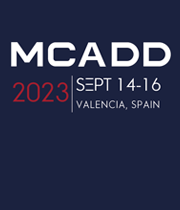Biological Targets of Therapeutic, Diagnostic, or Theranostic Interest
The biological target is anything within a living organism to which another entity (such as an endogenous ligand or a medicine) is directed and/or attaches, causing the organism's behaviour or function to alter. Proteins and nucleic acids are two major types of biological targets. The term can refer to the biological target of a pharmacologically active chemical ingredient, the receptor target of a hormone (such as insulin), or any other target of an external stimulus, depending on the context. Proteins such as enzymes, ion channels, and receptors are the most common biological targets. The word "biological target" is widely used in pharmaceutical research to refer to a native protein in the body whose activity is modified by a drug, resulting in a specific effect, which could be a beneficial therapeutic effect or a detrimental side effect. The biological target is frequently referred to as a pharmacological target in this context. The first step in the reverse pharmacology strategy to medicine discovery is to identify the biological origin of a disease and prospective therapeutic targets. Potential therapeutic targets do not have to be disease-causing, but they must be disease-modifying by definition. Forward pharmacology, based on phenotypic screening to identify "orphan" ligands whose targets are then identified using target deconvolution, is an alternate method of identifying new therapeutic targets.
- G Protein-Coupled Receptors
- Enzymes
- Ion Channels
- Ligand-Gated Ion Channels
- Voltage-Gated Ion Channels
- Nuclear Hormone Receptors
- Structural Proteins
- Membrane Transport Proteins
- Nucleic Acids


Title : A qsar survey on tyrosine kinase inhibitors
Atefeh Hajiagha Bozorgi, Faculty of pharmacy, Iran (Islamic Republic of)
Title : Abbott diagnostics: COVID-19 inactivation, nucleocapsid antigen automated immunoassay development, and variant testing for automated and lateral flow assays binaxnow™ and panbio™
Philip M Hemken, Abbott Laboratories, United States
Title : Synthesis, antibacterial activity of 3-amino 5-methoxyl-2-methyl quinazolin-4(3H)-one an amino-6-methoxyl-2-methyl of 4H–benzo[d] [1,3]–oxazine–4–one
Osarumwense Peter Osarodion, Ondo State University of Sciences and Technology, Nigeria
Title : Tackling mycobacterium tuberculosis resistance with tailored isatin-pyrimidine hybrids enoyl acyl carrier protein reductase (Inha)
Amgad Albohy, The British University in Egypt (BUE), Egypt
Title : Transition metal complexes/Organometallic compounfs as anticancer drugs
Prakash kinthda, Nims university,jaipur,rajasthan, India
Title : New n-ribosides and n-mannosides of rhodanine derivatives with anticancer activity on leukaemia cell line: Design, synthesis, dft and molecular modelling studies
Ahmed, Kafrelsheikh University, Egypt